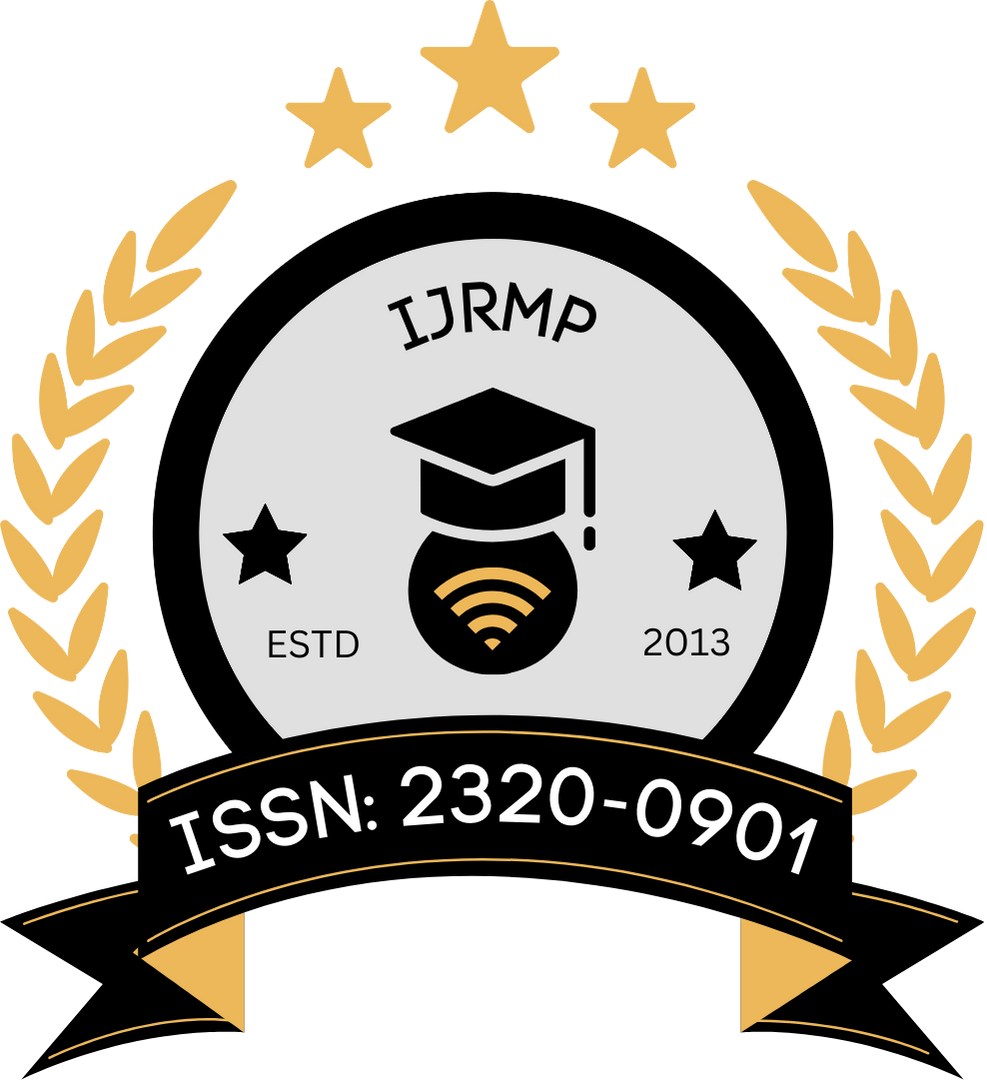![]()
DOI: https://doi.org/10.63345/ijrmp.v12.i3.1
Rajshree Soren
Independent Researcher
Meghalaya, India
Abstract
The rapid evolution of technology in the healthcare industry has led to the integration of innovative approaches for professional training. Augmented Reality (AR) is one such breakthrough that has the potential to revolutionize pharmaceutical sales training by offering immersive, interactive, and personalized learning experiences. This manuscript examines the incorporation of AR into pharmaceutical sales training, outlining its benefits, challenges, and implementation strategies. By analyzing existing literature up to 2021 and conducting empirical research through surveys and statistical analysis, this study investigates how AR can enhance knowledge retention, product understanding, and engagement among pharmaceutical sales representatives. The findings suggest that AR-based training programs result in higher trainee satisfaction, improved performance metrics, and a more efficient learning process compared to conventional training methods. The paper concludes with recommendations for integrating AR technology in training curricula and discusses the future outlook of technology-enhanced sales education in the pharmaceutical sector.
Keywords
Augmented Reality, Pharmaceutical Sales Training, Immersive Learning, Technology Integration, Training Effectiveness
References
- https://www.google.com/url?sa=i&url=https%3A%2F%2Fwww.kompanions.com%2Fblog%2Far-vr-in-pharmaceutical-industry%2F&psig=AOvVaw17Dj10L3gA1uHdgBFMitf7&ust=1741692215369000&source=images&cd=vfe&opi=89978449&ved=0CBQQjRxqFwoTCID_8Lmz_4sDFQAAAAAdAAAAABAE
- Azuma, R. T. (1997). A survey of augmented reality. Presence: Teleoperators & Virtual Environments, 6(4), 355–385.
- Billinghurst, M., & Duenser, A. (2012). Augmented reality in the classroom. Computer, 45(7), 56–63.
- Bower, M., Howe, C., McCredie, N., Robinson, A., & Grover, D. (2017). Augmented reality in education – Cases, places and potentials. Educational Media International, 54(3), 163–174.
- Chen, C. J., & Tsai, C. C. (2012). Interactive augmented reality system for enhancing library instruction in schools. Computers & Education, 59(3), 757–763.
- Davis, F. D. (1989). Perceived usefulness, perceived ease of use, and user acceptance of information technology. MIS Quarterly, 13(3), 319–340.
- Dede, C. (2009). Immersive interfaces for engagement and learning. Science, 323(5910), 66–69.
- Dunleavy, M., Dede, C., & Mitchell, R. (2009). Affordances and limitations of immersive participatory augmented reality simulations for teaching and learning. Journal of Science Education and Technology, 18(1), 7–22.
- Eberle, W., & Hennen, L. (2009). Evaluation of an augmented reality–based approach for teaching with immersive environments. In Proceedings of the 2009 International Conference on Virtual Environments (pp. 45–52). IEEE.
- Freina, L., & Ott, M. (2015). A literature review on immersive augmented reality in education: State of the art and perspectives. In The International Scientific Conference eLearning and Software for Education (pp. 133–141).
- Huang, H. M., & Liaw, S. S. (2018). Exploring the effects of augmented reality on learning performance and cognitive load. Educational Technology & Society, 21(1), 180–193.
- Johnson, G. M., & Kelling, A. (2020). Augmented reality for pharmaceutical sales: A case study in the application of immersive technology in healthcare training. Journal of Medical Marketing, 20(3), 212–219.
- Kim, S., & Chang, H. (2019). The impact of digital tools on pharmaceutical sales training effectiveness. Journal of Pharmaceutical Innovation, 14(2), 123–134.
- Lee, J., & Wu, T. (2018). Technology-enhanced learning: Integrating augmented reality in professional training programs. International Journal of Educational Technology, 9(1), 44–58.
- Li, Y., & Wang, P. (2020). Interactive technologies in sales training: An empirical study. Journal of Sales & Marketing Technology, 11(4), 299–315.
- Martinez, A. (2017). Evaluating the benefits of augmented reality in training and education. Journal of Educational Computing Research, 55(2), 265–287.
- Miller, J., & Carter, R. (2016). Digital transformation in pharmaceutical education: Trends and challenges. Journal of Pharmaceutical Education, 80(3), 167–176.
- O’Connor, D., & Martin, P. (2020). The role of augmented reality in enhancing sales force training. Journal of Business Research, 118, 55–64.
- Singh, R., & Gupta, V. (2018). Augmented reality in healthcare: Applications and challenges in training environments. Health Informatics Journal, 24(2), 104–118.
- Thompson, K., & Zhang, L. (2019). Immersive learning technologies: A review of AR applications in corporate training. International Journal of Learning Technology, 14(3), 98–112.
- Williams, P., & Brown, L. (2021). Integrating augmented reality into corporate training programs: Strategies for success. Journal of Training and Development, 25(1), 88–102.
